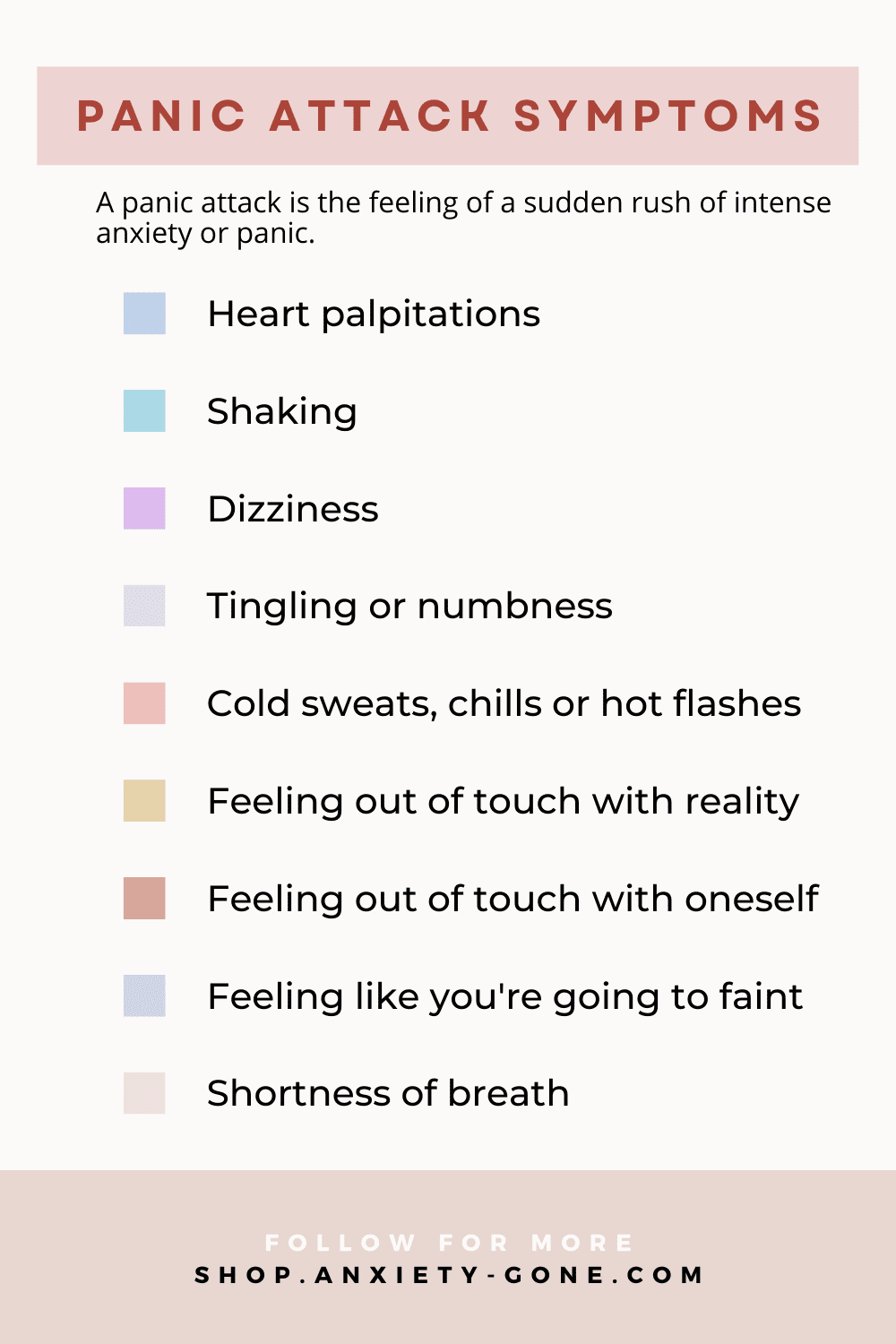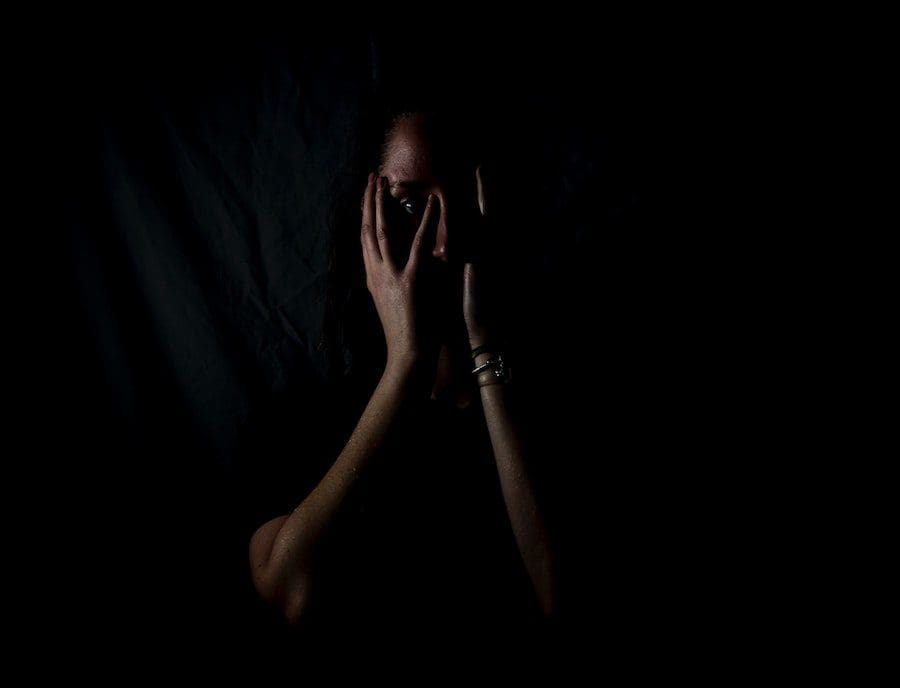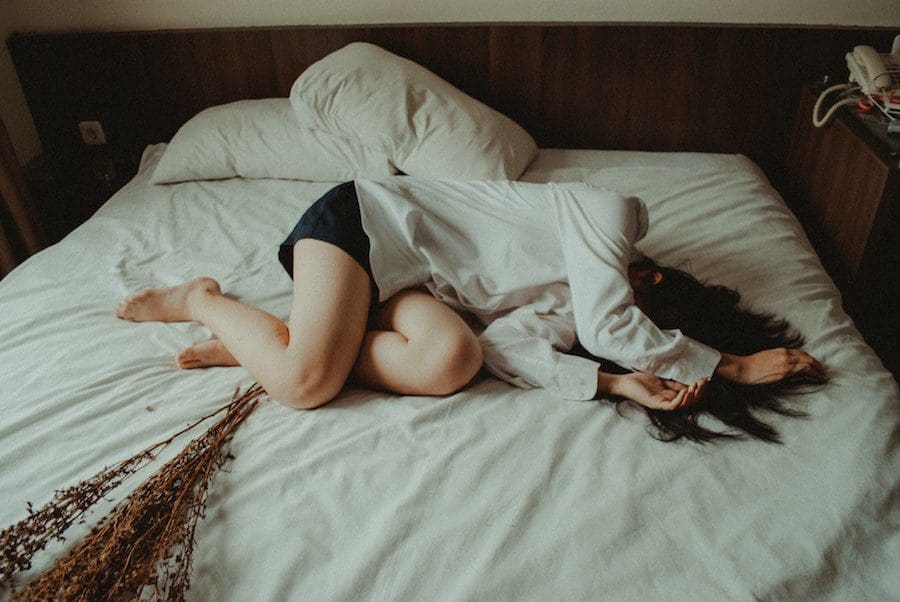Full Disclosure: Clicking on these links could mean a tiny commission for me, at no extra cost to you.
Panic attack symptoms can affect anyone, even the self-proclaimed “stress resistance”. We live in a world full of overwhelming distractions, pressure, and stress, so it should come to you as no surprise that more and more people are reportedly experiencing mental health issues, including those who have never experienced anything of the sort before. Fortunately, with a bit of knowledge and calming techniques you can effectively manage all types of anxiety disorders.
What are Panic Attacks?
A panic attack is the feeling of a sudden rush of intense anxiety, or rather, panic. They can also have physical symptoms, including shaking, feeling disorientated, nausea, heart palpitations, irregular heartbeats, dry mouth, breathlessness, sweating and dizziness. As you can imagine, these panic attack symptoms can be incredibly frightening to experience but they aren’t typically dangerous nor do they signify a more serious health condition. These symptoms can be brought on for what-seems-like no reason at all, causing a sudden and intense rush of fear and panic or they may be triggered by a past or traumatic experience.

Panic Attack Symptoms
The symptoms of panic attacks are quite similar to that of other types of anxiety, only they tend to come in with a fury. When having a panic attack, you may experience a series of the following sensations and symptoms:
- palpitations
- shortness of breath
- tingling or numbness
- cold sweats, chills or hot flashes
- dizziness
- nausea
- feeling “empty” in your head
- feeling faint
- derealization (feeling out of touch with reality)
- depersonalization (feeling out of touch with oneself)
- feeling anxious about “losing control” or “going crazy” or death
Panic attacks can happen at anytime of the day or night end to occur at night. For those who do experience them at night, you may wake up unexpectedly with a hot feeling, a racing heart or feel like you’re unable to catch your breath. This can cause the anxiety to build up, creating more fear, thus promoting more anxiety symptoms to appear.
For example, if you’re breathing faster and deeper due to panic, it can result in hyperventilation, which can cause other panic attack symptoms to appear or become stronger, such as feelings of confusion, disorientation, or even dizziness. This is why it’s so important to learn relaxation techniques to help you cope with panic attacks, so you can minimize the trickling effect.
The “Fear of Anxiety” Phenomenon
After experiencing your first panic attack, the memory and fear about experiencing it again can actually bring on more anxiety, more fear and more panic attacks. This can then lead to the fear of having a panic attack, which often causes people to avoid any situation or circumstance where such an attack could potentially happen again. However, by avoiding situations due to the fear of potentially having a panic attack, you only perpetuate the existence of the disorder by reconfirming to your brain that there is something to be scared of. This is usually the reason why panic attacks continue to happen.
You have a panic attack and it’s so scary you start to avoid places that may cause a panic attack, which causes you to have more panic attacks.
The phenomenon can lead to the avoidance of any place or situation, such as markets, shopping malls, churches, cars, large groups, parties, etc. However, it is primarily the fear of having anxiety that is responsible for creating more panic attacks.
How long does a panic attack last?
Most panic attacks last from a few minutes to half an hour but there is no duration set in stone. It can, however, feel like a lifetime for the person experiencing the panic attack. Fortunately, you can decrease how long a panic attack is by practicing mindfulness, implementing stress management and using relaxation items to create a calm, safe and reassuring environment.
What to do when experiencing a panic attack?
Using coping methods when experiencing a panic attack is one of the best things you can do to help calm the mind and body. The following tips will help you learn how to manage a panic attack at a given moment.
Recognize that what you’re feeling is a panic attack
The first thing you want to do when you begin to feel a panic attack coming on is remind yourself that it is just a panic attack. Recognize that the symptoms you are experiencing are not dangerous to your health and are only being caused by your anxiety. They are just feelings and they will pass. Breathe.
Accept that you’re experiencing a panic attack
The more you try to fight the feeling of a panic attack, the worse it can become because by fighting it, you are confirming to your nervous system that a threat is imminent. Instead, you want to try to accept your anxiety and the symptoms it’s producing. This can be easier said than done but with practice and by remembering that you are safe and just experiencing anxiety, you will eventually learn how to accept the sensations as they come.
Get to the bottom of your triggers
Panic attacks usually stem from a combination of stressful circumstances or triggers, and the fear of having another one perpetuated the issue, causing you to have more panic attacks and more fear, and so on and so forth. While you may be experiencing panic attacks now as a result of fearing the fear, it likely began from a specific trigger. Perhaps you were overly stressed at work, had a negative experience in a large crowd, or remembered a traumatic event. Identifying what may have contributing to the anxiety in the first place can be an excellent place to start your healing journey. You may need the help of a therapist with that – it is totally normal.
Let it pass
The panic attack will pass on its own. It always does. Just think of your panic attacks in the past; they always ended. But remember, by feeding into the fear you can make it last longer. So, use your calming techniques to get you through the panic attack and as quickly as possible. encourage the panic attack to end quickly.
Anxiety is a bit similar to drowning – the more you fight against the situation, the more you go under the water (anxiety). Remain calm (or as calm as you possibly can) and let it pass. Everything will calm down if you just let yourself give it time.
Breathe
There’s a reason ‘just breathe’ is such a popular phrase within the anxiety community. Being aware of your breath and slowing it down will bring calmness to your mind and body, and allow the anxiety to subside. You can take long deep breaths on your own or use a deep breathing technique known to help anxiety attacks, specifically.
Now, panic attacks are known to create a feeling like you can’t catch your breath. Remember that you can. You can breathe. You can catch your breath. Stay calm and keep trying.
There’s no denying that panic attacks can be absolutely terrifying and debilitating. However, they do not have to take control of your life. Using coping techniques for anxiety and the tips provided to you in this article will help you get through those difficult moments. Eventually, the better you get at overcoming the panic attacks, the less fear you will have of them and the less frequently and intense they will be. Over time, this can completely eradicate them from your life once and for all.









